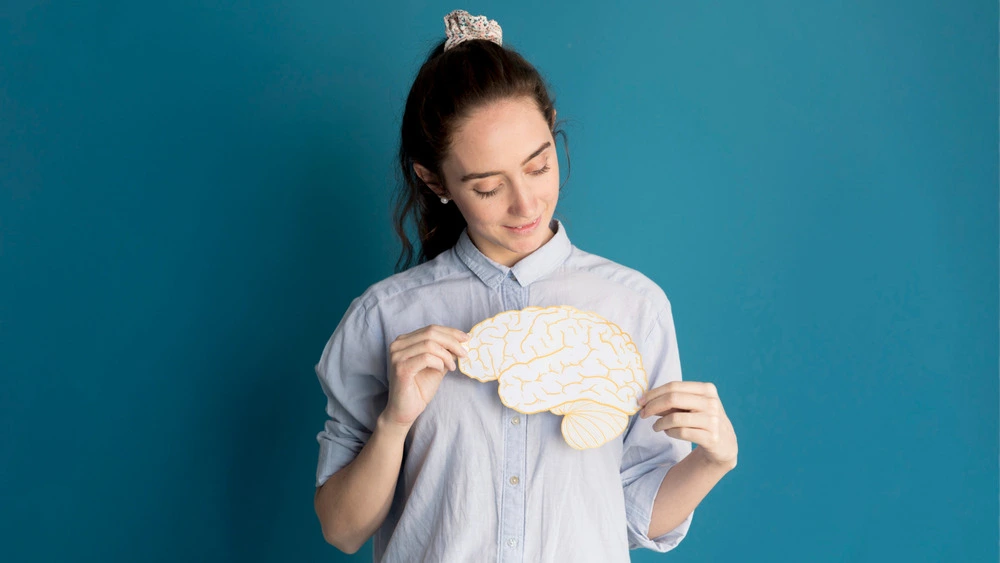As our world becomes increasingly complex and dynamic, adapting and thinking flexibly has become a highly sought-after skill. By understanding how to increase cognitive flexibility, individuals can unlock their mental agility, allowing them to excel in problem-solving, decision-making, and adapting to new situations.
In this blog, we look at practical ways to improve cognitive flexibility and more.
What Is Cognitive Flexibility?
Cognitive flexibility refers to the capacity of the brain to transition between extraordinary mental tactics or switch between considering more than one concept. It entails being open to new ideas, thinking about opportunity perspectives, and adjusting one's mind and actions. This mental agility allows people to troubleshoot creatively, navigate complex conditions, and thrive in dynamic environments. It is a vital talent in a modern-day, fast-paced, ever-changing international.
Why Is Cognitive Flexibility Important?
Cognitive flexibility is important both on a micro and a macro scale within the place of work. It lets you juggle some ideas immediately and enhance your cognitive function. You use cognitive flexibility without realizing it day by day.
This occurs while you multitask or when you switch from one task to another project. It also happens while interacting with other humans, from speaking to a client to your peers.
Without intellectual flexibility, you'd be unable to ‘switch' your mind from situation to state of affairs. Concentrating on a task and carrying it out would take a lot of work. It's an essential cognitive manner for productiveness.

How Do We Improve Cognitive Flexibility?
Cognitive flexibility is a crucial ability that can be improved via various strategies. A few strategies will help how to improve cognitive flexibility. While there are no strict statistics on how much improvement can be achieved, studies show that regular exercise and utilization of specific strategies can lead to notable improvements in cognitive flexibility.
- Embrace novelty: Seek out new experiences, pursuits, or challenges that might be out of doors in your comfort zone.
- Expose yourself to various views: Read books, watch movies, or engage in conversations that expose you to different viewpoints and ways of thinking.
- Encourage creative thinking: When confronted with trouble or a decision, attempt to generate a couple of solutions, and don't forget different views.
Mental Flexibility – Adapting to Shifting Demands
Mental flexibility is the capability to adapt one's thinking and behavior to one-of-a-kind conditions. It allows individuals to adjust their thoughts. It allows them to improve mental flexibility as needed, which may lead to innovative hassle-solving, powerful decision-making, and the capacity to thrive in changing environments.
In a recent study, capuchin, rhesus monkeys, and humans have been examined for trouble-solving skills. While all monkeys displayed cognitive flexibility using locating shortcuts, most effective 60% of people did the same. Enhancing intellectual flexibility can create new neural pathways, facilitating divergent questioning and creative problem-solving.
Methods to Enhance Mental Flexibility
- Engage in numerous activities: Participate in intellectual and bodily sports to venture your brain and frame in exclusive methods.
- Manage pressure: Find methods to manipulate pressure through exercise, relaxation techniques, or hobbies.
- Practice adaptability: In everyday life, attempt to method demanding situations with an open mind and be inclined to trade techniques if needed.

Cognitive Adaptability: Exploring Brain Flexibility
Brain flexibility refers to the brain's ability to adapt and reorganize in reaction to new stories, mastering, and challenges. It entails regulating cognitive techniques, transferring among tasks, and thinking creatively.
Some strategies are suggested by doctors on how to improve brain flexibility. This adaptability is crucial for trouble-solving, gaining knowledge, and keeping intellectual resilience throughout diverse conditions and demands.
How do we improve brain flexibility?
- Engage in numerous sports as an assignment of the brain
- Practice mindfulness and meditation to enhance adaptability.
- Read widely to increase understanding and views.
- Solve puzzles and mind teasers to enhance problem-solving capabilities.
- Learn new capabilities to work out extraordinary parts of the mind.
A Sneak Peak into Cognitive Flexibility Training
Cognitive flexibility is a critical aspect of the cognitive features that let people adapt their thinking and behavior in response to their surroundings or modifications in their state of affairs. This capability may be trained and progressed via diverse methods and is particularly applicable across distinct age agencies, which include kids and older adults.
Ways To Incorporate Cognitive Flexibility Training
Training for cognitive flexibility involves sports promoting intellectual and bodily getting to know. These activities, including dance, martial arts, boxing, painting, chess, and Sudoku, task the mind, necessitating the adjustment of idea methods and, in the end, enhancing cognitive flexibility. Additionally, the publicity of new conditions and mindfulness practices are recommended strategies for honing cognitive flexibility.
Researchers have found that regular exercise can cause sustained improvements in cognitive flexibility, as statistical research indicates, with blessings that have endured over the years. For example, an observation regarding 117 kids of 3 years of age demonstrated the direct and switch results of cognitive flexibility training.
Cognitive flexibility is important for children's seamless transitions between sports and hassle-solving processes. Fostering this capability may be executed via attractive, fun sports that integrate the ideas of rigidity and flexibility.
Regarding older adults, cognitive flexibility education holds importance because of the capacity for cognitive decline related to growing age, particularly in executive capabilities. Regular physical pastime and exercise correlate with more advantageous, better-order cognitive features in older adults. Encouraging practices, which include meditation, yoga, and inventive interests, can stimulate cognitive flexibility in old people.

Role Of Cognitive Flexibility Exercises
How to increase Cognitive flexibility exercises train the mind's ability to adapt to new information, transfer among duties, and think about multiple ideas concurrently. These physical games frequently involve engaging in sports that project the mind, which includes puzzles, brainteasers, meditation, and gaining knowledge of new abilities.
Research has shown that cognitive flexibility training can yield numerous benefits for people across distinctive age groups, mainly children and older people.
Cognitive flexibility exercises have been associated with stepped-forward educational performance in youngsters. Studies have found that undertaking such activities can result in a 25% enhancement in academic performance. This shows that cognitive flexibility education not only affects and sharpens cognitive competencies, it also undoubtedly impacts academic success.
For old people, cognitive flexibility exercises were related to maintaining mental characteristics and decreasing the danger of cognitive decline. Research indicates that old people who frequently participate in how to increase cognitive flexibility physical games exhibit a 15% reduced risk of cognitive decline compared to individuals who do not interact with such activities.
This underscores the significance of these sporting activities in promoting healthy mental growth and mitigating the results of age-related cognitive decline.
Conclusion
Cognitive flexibility exercises help us develop an agile mind. These exercises elevate our experience to live more resilient, creative, adaptable, and happy lives. A more agile mindset allows us to evaluate and adjust in varied jobs, roles, and responsibilities.
Cognitive flexibility enhances our perceptions, actions, emotions, motivations, and inspiration. We tend to have broad thinking with a happier or optimistic mindset. With cognitive flexibility, we can experience mental shifts without being a patron of a particular mindset.
FAQs
1. What is cognitive flexibility training?
Cognitive flexibility training starts with daily practice and awareness. Living a healthier life with adequate exercise, sleep, a nutritious diet, and mindfulness meditation are some basic brain training techniques that remove distracting thoughts, broaden perspective, and make space for creativity and new thinking.
2. What is the importance of cognitive flexibility?
Cognitive flexibility enables higher resilience in adverse events, leading to a better quality of life in adults. It benefits emotional and social cognition, linked to an enhanced understanding of other's emotions, thoughts, and intentions.
3. How to improve cognitive flexibility in adults?
Cognitive flexibility can be improved in adults and old people by practicing meditation, yoga, and artistic and creative activities. By promoting lifelong learning of new skills and mindfulness, problem-solving is maintained and improved.
4. How does exercise affect cognitive flexibility?
Moderate-intensity exercises have been found to increase memory and cognitive flexibility. On the other hand, high-intensity exercise improves the speed of information processing, benefiting cognitive functions.









